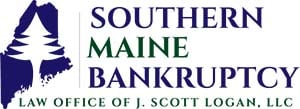Is Debt Settlement A Viable Option To Filing For Bankruptcy?
Debt settlement in Maine is the most common alternative to bankruptcy. Unlike debt consolidation, which wraps all the debts into one payment at a fixed interest rate for three to five years, most people don’t pay off their debts in full through debt settlement but instead settle at between 40% to 60% of the debt owed on the date of settlement. Creditors usually send a Form 1099 to the IRS upon settlement, resulting in imputed income and consequential tax liability to the consumer who settled the account.
Warning: Debt Settlement Is Frequently A Trap For The Unwary
In recent years, thousands of companies have sprung up advertising debt settlement services on television, the radio and the internet. Most of these companies don’t simply take your money and flee the country. Instead, they typically offer an affordable monthly payment and tell you they can settle all your debts within a few years. They rarely tell you about the tax consequences of settling and frequently hide their commission, which is usually 15% of the debt they are seeking to settle. For example, 15% of $30,000 of credit card debt is $4,500.
They also rarely tell you your creditors will continue to charge interest until they settle and receive payment, or that the settlement company will do little or nothing for you until their fees are paid in full. If you have $30,000 in debt and pay $400 per month, it will be 12 months before the fees are paid and they can even begin to negotiate. If the default rate on your credit cards is 30%, you will now owe $39,000. Most credit card companies don’t wait a full year. Instead, they file lawsuits, incurring legal fees and getting judgments that they attach to your house, car, and/or wages. Many of my clients come to see me only after paying $4,000 or more to a settlement company, getting sued, and realizing the credit card companies are going to garnish their wages long before the settlement company even begins negotiating.
Debt Settlement Is Generally More Expensive Than Filing Bankruptcy
In my experience, it doesn’t make sense to set up a payment plan. If you have a lump sum of money, we can negotiate and settle quickly, at a minimum cost to you. At the Law Office of J. Scott Logan, LLC, I usually have been able to settle with credit card companies for around 40% of the total amount you owe. Sometimes, I have been able to settle for as little as 25%. Debt settlement is generally much more costly than filing bankruptcy. If you have just $10,000 in debt, you could likely settle that for $3,500, plus $200 in fees, and the tax consequences of the $6,500 of forgiven debt will likely exceed $1,300.
You end up spending $5,000, which is nearly three times the total cost of filing Chapter 7. The creditor will report the account as “settled for less than the full balance” on your credit report for an additional seven years, versus the 10 years that a bankruptcy would report. If you don’t have a lump sum available, filing bankruptcy is usually the wiser option.
Speak To An Attorney Sooner Than Later
Call the Law Office of J. Scott Logan, LLC, in Portland at 207-613-8590 or send me an email to schedule a free consultation to discuss debt settlement and other debt relief options with an experienced debt relief attorney.
Law Office of J. Scott Logan, LLC, is a debt relief agency. I help people file for bankruptcy relief under the Bankruptcy Code.

